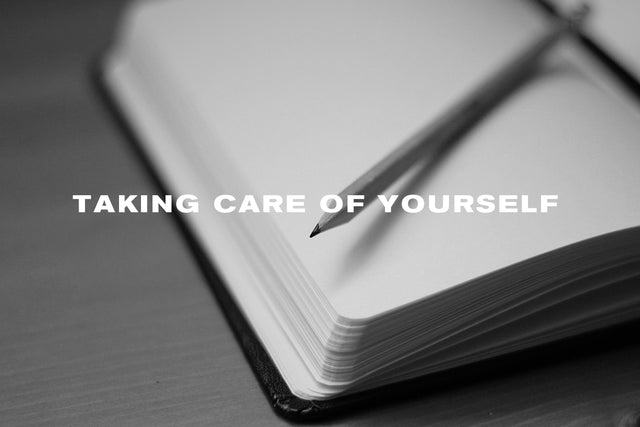Take Care of Yourself Series Check-in
Taking care of yourself is a continuous process that requires a lot of effort and dedication. We released our 3 part Take Care of Yourself series earlier this winter as a guide to help look after your body, health, and mind.
Now that some time has passed and a change of season is on the horizon, we wanted to check in and make sure you’re still prioritizing yourself and making positive changes in your daily life that will lead to your long-term self-improvement. Additionally, we thought we’d offer the following tips and tricks as considerations for you to incorporate into your lifestyle as well.
Tip 1
Waking up in the right mindset can impact how the rest of your day will follow. We chatted with former track and field middle distance athlete, Sarah Korpach, who graduated with a BSc in the Behavioural Neuroscience program at UBC and is currently working as a home health care associate and personal trainer. Sarah dove into the importance of long-term goal setting, especially during the long winter months:
“I start by choosing a specific and measurable goal with a time restraint. Say six months from now I want to participate in a specific race, or be able to complete a certain activity. Once I’ve chosen my goal, I make a plan of action and put that plan to work through the winter months. It’s important to draw inspiration and accountability from the people around you – tell them about your goal, and involve them in your process for motivation when times get tough.”
Sometimes thinking about the long-term can be daunting, so start with short-term goals even if they’re just one thing you want to accomplish for the day or the week. Whether you want to buy lunch for a deserving individual, find time to exercise, or thank someone for helping you – no goal is too small and can only lead to further personal achievements.
To read more about how to take care of your mind, check out Part 3 of our Take Care of Yourself series by clicking here.
Tip 2
What we put into our body plays a huge role in how it affects our mood. Beyond making sure you have a healthy lunch that leaves you feeling energized and productive – and not bloated and lethargic – it’s also good to add some extra supplements into your everyday diet. According to Parents Canada, there are four winter blues-busting supplements that will help you feel your best and overcome nutritional deficiencies all winter long.
1. Vitamin D: the UVB rays our skin needs to produce vitamin D don’t reach Canada this time of year so an extra dosage can help maintain the immune system
2. Calcium: since vitamin D helps our bodies absorb calcium from the food we consume, lower levels of vitamin D result in less calcium in our system, which weakens the bones
3. Omega-3s: An extra boost of Omega-3 can help relieve the negative effects of SAD, balance your mood, and reduce the risk of chronic ailments that flare up during winter
4. Probiotics: our immune system goes through a battle during the winter and probiotics can play a very important role in keeping it in tip top shape so you’re not constantly getting sick.
For food inspiration to make sure that your diet is well rounded, check out Part 2 of our Take Care of Yourself series by clicking here.
Tip 3
After sitting at a desk for many hours on end, make sure to incorporate some movement in your daily routine in order to get your blood flowing. Or, find an activity you actually enjoy doing to release some extra dopamine in the brain to help combat any stress or dread you feel when finishing your day. Sarah has the following advice:
“Consistency and enjoyment of your chosen activity is key. Building exercise into your routine is a big part of establishing habits that will benefit your health and well being in the long term, and choosing something that makes you feel good will help motivate you to stick with it. Exercise isn’t a chore for me anymore, it’s a privilege and part of my day I look forward to.”
For more tips and tricks about staying physically active, check out Part 1 of our Take Care of Yourself series by clicking here.
The recommendations and opinions listed in this article are written with the intention to support healthy living and are not medical claims. We do not endorse any of the sources listed in the article, we are only presenting them as considerations and not actual fact. These are not claims to help solve any forms of mental illness nor are they considered options to combat diagnoses. Please consult a medical professional for any questions or concerns regarding the medical implications that exist with each recommendation in this article.


